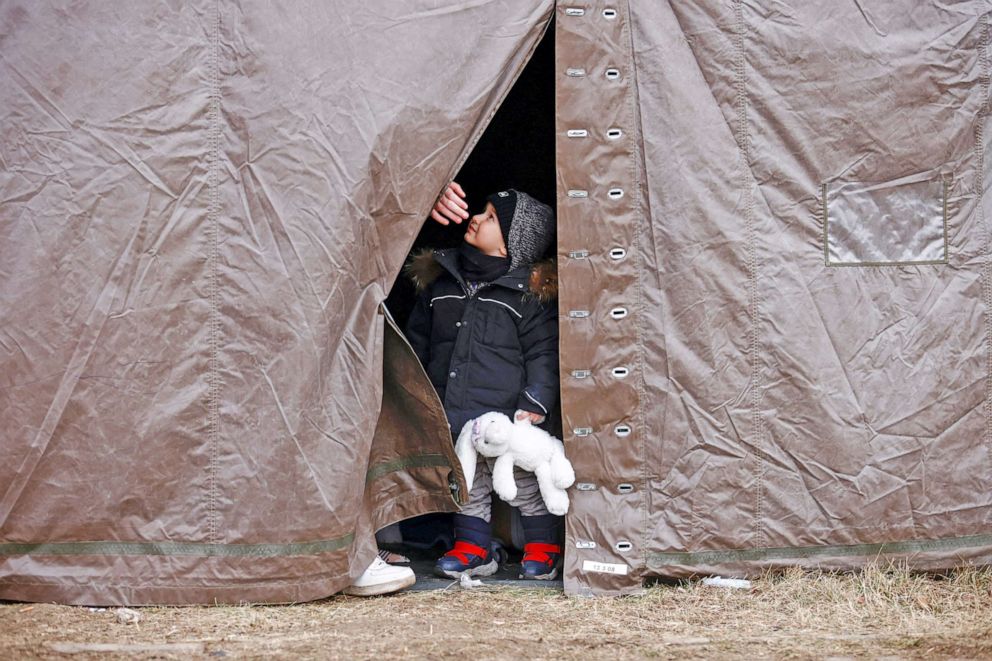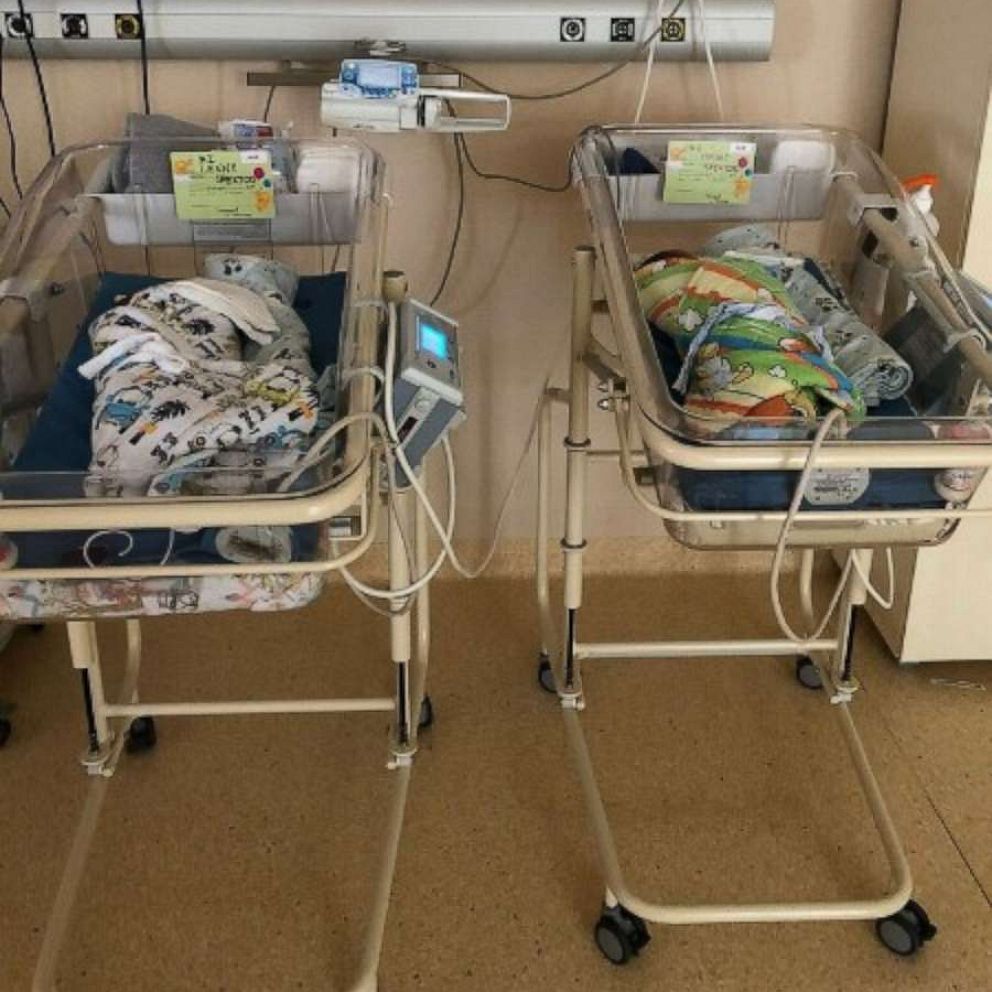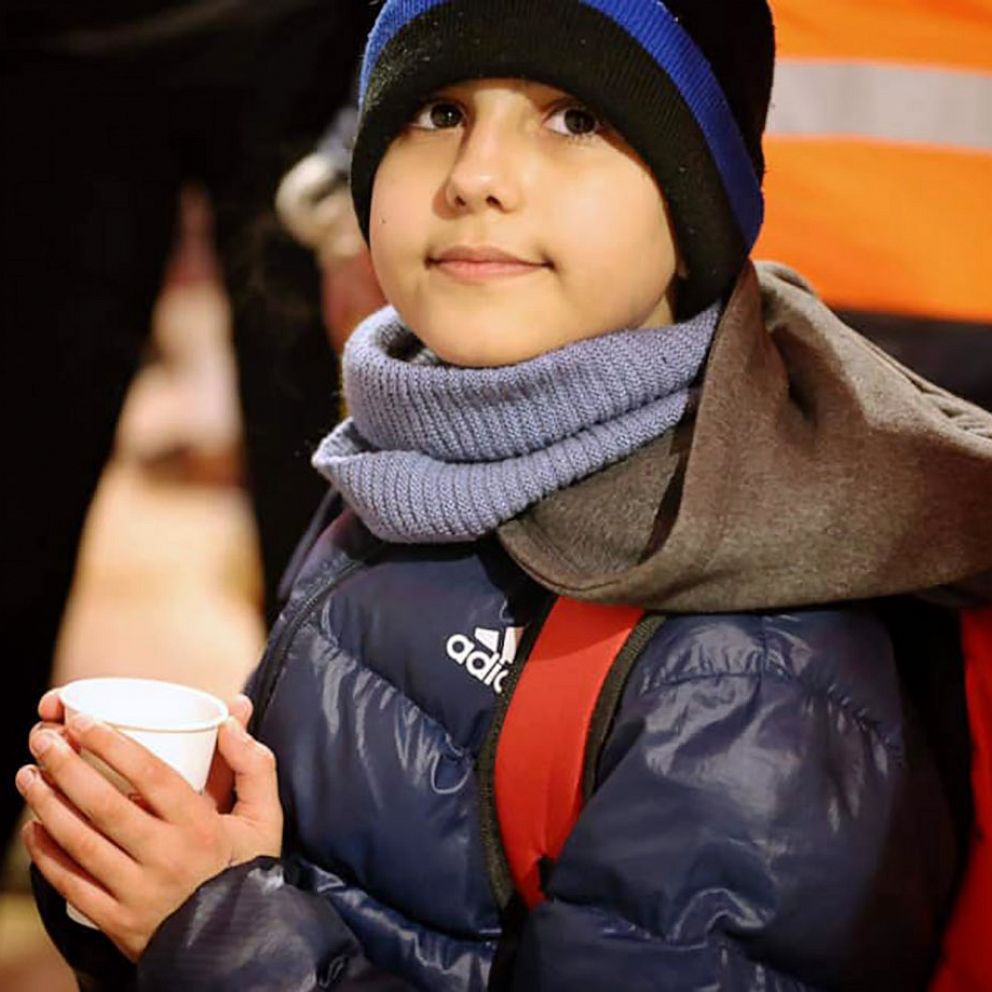How to talk to kids about the war in Ukraine
Here are five steps parents can take to help children navigate turbulent times.
In a digital age, children have access to around-the-clock news coverage of frightened refugees, gunfire and talk of a nuclear attack.
Many American parents are wondering how media coverage of the war in Ukraine may be impacting their children.
“We tend to believe that children are not aware of what's happening, but in fact they are," said Dr. Stephenie Howard, a licensed clinical social worker and assistant professor at Norfolk State University.
"They're always listening. They pick up on bits and pieces of information and they're left to put the pieces together by themselves, which can be worse,” she added.
Although the events in Ukraine are a continent away, children in the U.S. might experience vicarious trauma, which happens when people are impacted by someone else’s adversity even if they do not directly experience it themselves. Children may also misinterpret public crises often in ways that are unexpected.
"Kids will hear about these things. Their fears and worries may be distortions of the reality … and when there's this much coverage, they might think there's a war in their own city," Dr. David Schonfeld, director of the National Center for School Crisis and Bereavement at Children’s Hospital Los Angeles, told "Good Morning America."

Below are five steps parents can take to help children navigate turbulent times.
1. Initiate the conversation.
Experts agree that families should feel empowered to ask about their child’s understanding of an event, correct misinformation and provide reassurance.
Schonfeld, who recently published an article for the American Academy of Pediatrics on this subject, recommends starting the conversation as soon as children are old enough to talk.
“It may very well be a one- or two-minute conversation with a 6-year-old where you say, ‘Did you hear anything about the fact that in the country far away from here called Ukraine, there's a war?” Schonfeld said.
Added Dr. Micki Burns, a licensed psychologist and chief clinical officer at Judi’s House, an organization that provides grief counseling for children and families: “Come into that conversation and allow your child to drive the direction that it goes in… and allow them to teach us what's going to be most helpful to them."
When talking to your child, focus on active listening. There is often a tendency to try to "fix" scary situations, but it is important to avoid providing false promises. Give developmentally appropriate answers to their questions and remind them that you will help keep them safe.
2. Monitor for signs of stress or anxiety.
Children at different ages may process scary events on the news in different ways. Some may show changes in appetite, sleeping habits, or seem withdrawn. Dr. Kimberly Clinebell, a child and adolescent psychiatrist with University of Pittsburgh Medical Center Western Psychiatric Hospital, adds that young child may even regress.
If you notice concerning changes in your child’s behavior, talk to their pediatrician as they can often help explore these behaviors and connect your child to mental health providers.
3. Check in with your own emotional well-being.
"The first thing for all parents in all situations is to make sure that you're taking care of yourself. I know it's such a cliché but … put the oxygen mask on yourself first before you go to help your children,” said Burns.
Self-care can look like many things, like taking a break from news coverage.
“I just tell people if you're watching, viewing, listening to or reading [the news] and you're not feeling reassured and you're not learning practical new information, then unplug,” said Schonfeld.
Reducing exposure to graphic videos and images can be protective for both you and your child.
4. Model compassionate behavior.
It is also critical for parents to recognize that wartime can bring about misunderstandings and prejudices surrounding different groups of people. Many Americans have family in Russia and Ukraine.
“There's a tendency for us to say things which are really discriminatory because we think it's safe among friends. But we really don't know all of the history of all of our friends and acquaintances,” said Schonfeld.
He recommends modeling kind words, especially during tense times.
5. Identify practical ways to help with the crisis abroad.
Lastly, watching conflict unfold on TV can make kids feel helpless.
“Try to think of ways to make a positive impact in the world, whether that's with Ukraine or some other way that they feel like their passions and their skills could be put to good use," said Dr. Maria Rahmandar, an adolescent medicine professor at Lurie Children’s Hospital of Chicago.
Sophia Gauthier, MD, is a pediatric resident physician at St. Christopher's Hospital for Children in Philadelphia as well as a contributor to the ABC News Medical Unit.







